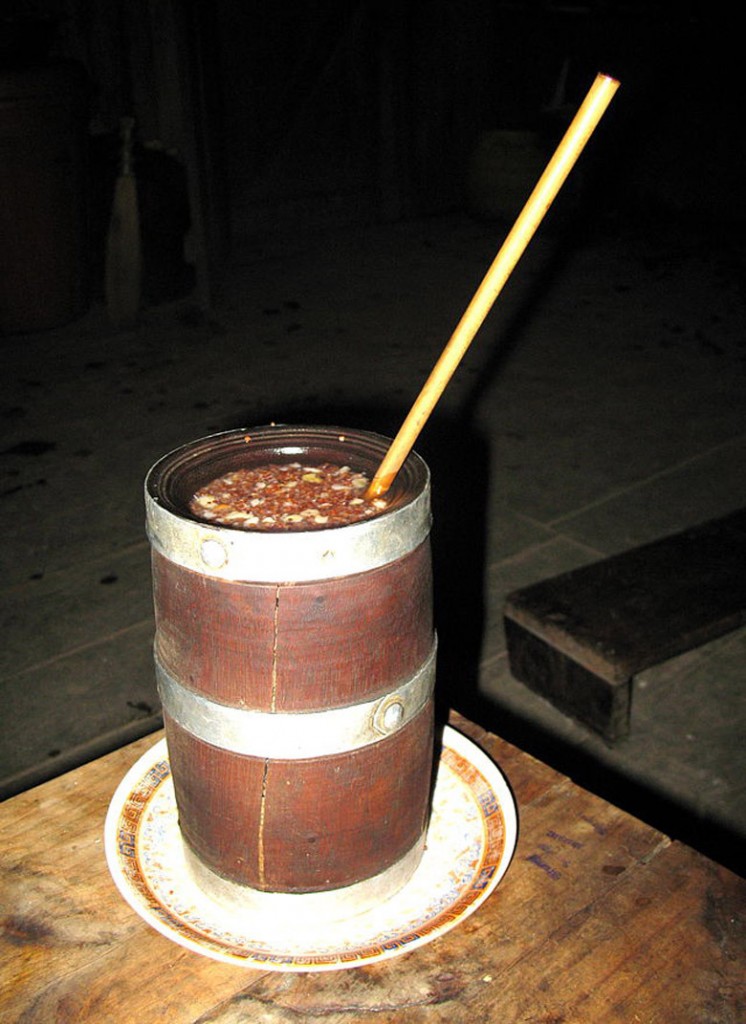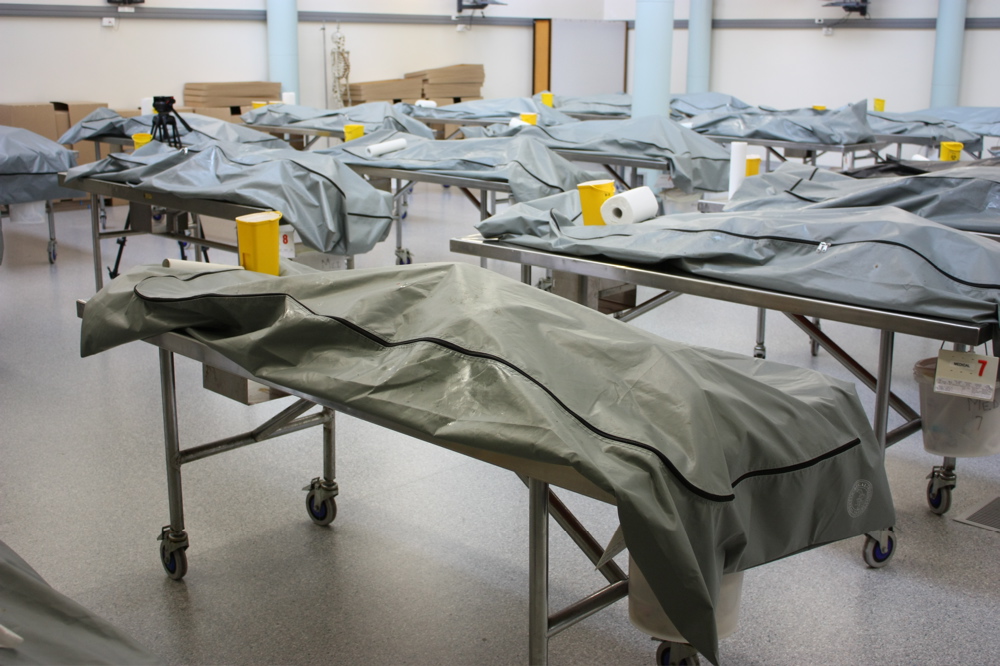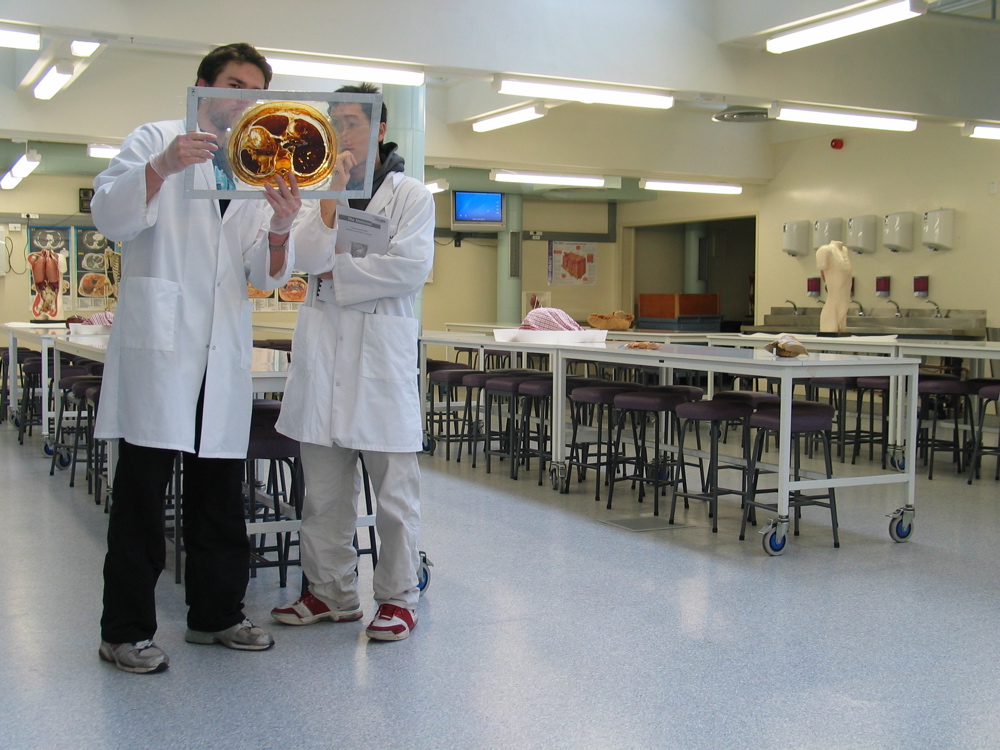Caleb Wilde
(218 comments, 980 posts)
Posts by Caleb Wilde
Poisoned Beer Kills 69 at African Funeral
In addition to the 69 that were killed, another 169 were poised by the beer.
The country where this took place (Mozambique) has declared three days of national mourning (January 12, 13, and 14th).
This from the website RT:
Police investigation has discovered that the beer was likely poisoned with crocodile bile during the funeral. Those who drank the beer in the morning of the funeral day reported no signs of illness, while those drinking it in the afternoon got sick, according to authorities.
The woman, who was in charge of brewing the beer, also died from poisoning.
All the blood and beer samples are being sent to the capital Maputo for testing as regional offices do not have the right technology.
To give this a little more context, here’s some info about the beer, called Pombe, that they would have drank from the funeral (from Heavy):
Pombe is a local specialty in eastern Africa. Pombe is the Swahili word for “from beer.” It wasfirst developed at the end of the 19th century by a German brewery. The brewers had imported the millet crop used for the beer from eastern Africa. It is generally brewed in a large pot with drinkers traditionally using straws to ingest the drink, straight from the pot.
The crocodile bile that was supposedly placed in the beer is (obviously) extremely dangerous.
A couple thoughts:
1) Apparently almost every drinks beer at Mozambique funerals.
2) Whoever did this is an extremely horrible person.
3) Don’t rule out the funeral director.
23 Spiritualized Comfort Cliches to Avoid When a Child Dies
The following post was originally a guest post on Michelle Van Loon’s blog, “Pilgrim’s Road Trip.”
The author of the post, who wishes to remain anonymous, wrote the following message to me via facebook:
Last June we accepted a foster placement of twin girls who were four months old. We’ve been foster parents for almost 7 years, but nothing prepared us for the sudden death of one of the twins, Ellie, at almost seven months. She went to bed a happy and healthy baby and when I reached into her crib in the morning I pulled out a corpse instead.
I am traumatized. I am an emergency nurse and not unfamiliar with death. I did CPR on Ellie out of reflex but with the full knowledge that she was gone and I couldn’t fix it. I can still taste the breath that I pushed out of her lungs. I’m never going to be the same…and I know it.
I am also a Christian. I think. In fact my husband is a church leader, making me the wife of a spiritual leader.
She then gave me the link to her post at “Pilgrim’s Road Trip.” I asked if I could also post it on my blog and she gave me permission. This post is immensely challenging, and will beg you to vicariously see the grief of a bereaved mother. This isn’t an easy read, but it’s one that will help you understand the grief of a parent who has lost a child. It’s written from the perspective of Holy Saturday … where doubt and silence are the only forms of faith.
*****
Please stop attempting to spiritualize the death of my child. Assigning some thoughtless Christian platitude only serves to deepen my anger and further question my beliefs. If you don’t know what to say, a simple, “I’m sorry, I don’t know what to say,” would be far better than these actual attempts at comfort that I’ve received:
1. “God has a plan.”
Really? You serve a God with a plan that involves killing babies? Or at least standing by and allowing the baby to die when you believe that he could have intervened? Because the baby killers I’ve seen get life in prison. And even the convicts know which guy to attack.
2. “Some good will come of this. You’ll see.”
You think that at some point I’m going to see some direct blessing in my life or someone else’s that will make me think, “Aha! Here’s the good that came from my child’s death! I am now so glad that she died so that this could happen!” No! An Almighty God could surely think of some other really creative way to bring about good. Or else I don’t want that “blessing.” I will always wonder why it had to be this way, no matter what good things may come later in my life.
3. “Just think of the ministry you can have someday to parents who have lost children.”
No. At least not the ministry you’re thinking. That would require me to say that God is somehow in this for them and I happen to know that’s not helpful. Plus, I don’t want that ministry. I’ve spent twenty years of my life trying to serve God full time. I’ve put every major decision of my life through “God’s will” as a filter, including setting aside life dreams for myself. All of the big things I’ve tried to do for him have been heartbreak for me. I think I’m done with ministry at this point.
4. “God loves you.”
Imagine If I were married to someone who said, “I love you. I mean, you’re going to get hurt and I won’t stop it. In fact, I might even cause it. But I love you! It’s for your own good! It’s because of my great love for you.” You would encourage me to get to a women’s shelter immediately for my own safety. Where’s the safe place from this kind of “love?”
5. “God’s perfect love casts out fear.”
I’ve been dealing with a moderate amount of anxiety since my baby’s death. I’m not a very anxious person by nature, so I’ve sought some help dealing with the feelings of panic. I struggle with coming home after a night shift and wondering what I might find. I compulsively check on my children at night. Going to the doctor with another child of mine is a trip through some very dark places of fear. I’m constantly wondering which of my family members is next on God’s hit list. The advice that God’s love will fix those fears isn’t really resonating with me right now.
6. “God doesn’t give you more than you can handle. Just depend on Him.”
The Christian grief counselor we saw put it this way: “God doesn’t give sorrow to people unless he knows they can handle it.” Really? Well, he was wrong. I can’t handle this. And if he doesn’t give me more than I can handle, why do I need to depend on him? The last time I was depending on him, my child died. So, yeah. That’s not likely to happen again soon.
7. “You’ll see her again someday.”
Is that day today? Then no, this isn’t helpful. It’s minimally hopeful if I can be sure that it’s true, but there’s no Scripture to really support this belief. There’s inference and tradition and conjecture, but there’s no chapter and verse that says, “Infants who die go to heaven.” Besides, If I live an average life expectancy, I will have to live at least another fifty years of missing her. ”Someday” could be a long, long time from now.
8. “Look at all of God’s blessings in this situation already! At least_______”
All of your “at leasts” aren’t blessings to me. Anything you say that starts with “at least” only minimizes my feelings.
9. “Just read [insert Bible verses here] and you’ll feel better.”
Passages that have been suggested to me include verses about God’s judgment, the story of Jesus bringing Lazarus back to life, a passage instructing me that my heart is deceitful and wicked, and other similarly “helpful” Scriptures. This advice also assumes that I know no Scripture to which I can turn. You know which verse has been ever on my mind ever since the day my child died? “My God, my God. Why have you forsaken me?” I’ve been reading the Bible for almost thirty years. I know where to find verses. Not too many of them are helpful right now. Bludgeoning me with Romans 8:28 is especially painful.
10. ”Just trust God. He is in control.”
I was trusting God at the time my baby died. She still died. If God is in control, that assumes that he killed my baby. My sweet, smiling, dimpled baby. If he didn’t kill her, he stood by while she died and didn’t stop it. Still guilty. I’d much rather believe that fate or chance had a hand in her death. I’m a lot more likely to have a continued relationship with someone who didn’t cause my baby’s death, either directly or indirectly.<
11. “This happened for God’s glory. Maybe someone might even get saved!”
This has been said to me with much excitement and expectation. You mean to tell me that God couldn’t have orchestrated some other way to get glory or reveal himself to someone? Or that some person out there is going to say, “Oh! God allowed ‘T’s’ baby to die. I should start a relationship with him and trust him with MY life!” Doubt it. And even if that actually did happen, should I then feel that this was all worth it?
12. “This world is not our home. She’s in a better place now.”
Yeah? Well, I live here right now, so it’s my home. If you actually believe this, why haven’t you committed suicide yet? As for me, I’d finally be in a better place if I died, too? And no, I’m not at all suicidal. I’m just saying that no matter where she is, I’m in a really painful place right now.
13. “Just imagine what tragedy or heartbreak God saw in your baby’s future that he decided to save her from.”By killing her? I’m sure there was another possible work-around or two. For that matter, this has been a devastating tragedy and heartbreak for me. Why didn’t I die as an infant so I wouldn’t have to go through this now?
14. “God will carry you through.”
If this is the kind of thing God is going to carry me through, I’d like him to please put me down.
15. ”Be thankful for what you have.”
The assumption here is that I wasn’t thankful before (I was), that I’m not thankful now (I am), and further minimizes the loss I feel. How do you suggest that I answer even the simplest question of how many children I have? I’m thankful for what I have AND for what I no longer have. It’s impossible to answer this question correctly now. Similar, but even more guilt-producing is “You have your husband and children to think about now.” Thank you for the suggestion that my grief and pain are invalid by comparison and should be left unmanaged for the good of my family. See? There. I was thankful.
16. “Things will get better.”
When? How do you know? Because for me, bad things just keep happening. It can get worse and I can name at least fifty ways it could get worse right now. So don’t say that things will get better. It could go either way.
17. “Maybe God is trying to teach you something.”Well, maybe he could have just texted me the instructions instead. Seriously. All I’m learning is that God can do whatever he wants and that’s not necessarily a good thing. A similar platitude, “Maybe God is trying to draw you closer to himself”, is equally insulting. Can’t he see the future? Didn’t he know that using an infant’s death to deepen our relationship might backfire? Please don’t presume to know the mind of God or impart your opinion of it to me.
18. “She’s with the Lord now.”
She wasn’t before? How about the rest of my family? I’m not with the Lord? Well, I’m glad he’s with someone, I guess.
19. “I know how you feel. I felt exactly that way when my grandparent/great Aunt Lucy/Fluffy died or when my child was sick, but then got better. But I just prayed and kept my eyes on God and he got me through. He’ll get you through, too.”
You have no idea how I feel. I wouldn’t wish how I feel on anyone. And what will he get me through TO? Can you guarantee that whatever is on the other side of this trench in life is something less painful? Because whatever it is, it will be a life missing my child and all the things that loss means.
20. “I was so devastated when your child died that I couldn’t go to work that week/I’m still struggling a month later.”
Both of these are actual things said to me by people who had seen my baby fewer than six times in her whole life. Other ways people who barely knew her have tried to be a part of the drama and somehow connect themselves to this tragedy include Facebook statuses or tweets with her name as a hash tag, prayer requests without my permission or in inappropriate places, and most difficult: “How are you doing? Because I’m so sad that ____.” There was an expectation that I should comfort THEM. Exhausting.
21. “You should_____.”
Don’t tell me what to do. I don’t want to exercise more, eat better, read that great book about God, go to a grief support group, focus on God, get involved more at church, get alone with God, go away for a weekend without my kids, take sleeping pills, talk about it more, or think about it less. I can’t afford to take any more time off work. I can’t concentrate enough to do much of anything right now, honestly. And a bigger list of things I “should” be doing right now is simply not helpful.
22. “If you need anything, let me know. I’m here for you.”
No. I’m here. Alone. It’s not possible for you to be here for me or I’d gladly give it to you. I’m glad you want to help, and I don’t doubt your sincerity. But this comment is a substitute for any kind of real help. You’ve absolved yourself of actually helping me in any tangible or intangible way and placed the onus on me to come up with some idea of what I need. You know what I need? I need my child. Alive and giggling. I need the image of her lifeless in her crib out of my mind and the taste of her dead skin out of my mouth. I need her siblings to grow up with her. I need for my husband to have never experienced this depth of pain. If you can’t give me any of these things, you’re kind of on your own with suggestions for helping me. Maybe send a sympathy card. It will make you feel better.
23. “Well, I’ll pray for you.”
Aside from the doubt that exists over whether you’ll actually do it or not, how is this helpful? Who knows better than God what I need and why hasn’t he already given it to me? Your asking for it will make it magically appear? The worst part about this statement is that it usually comes at the end of your listening to me or grieving with me. As in, “You’re done now. I’ll pray for you, okay? You’re making me uncomfortable with your intense sadness and hard questions.”
I know that I haven’t left you anything to say. Maybe that’s the point. I also know that, if you’re a typical Christian, you’re defensive and even deeply wounded by what I’ve said here. You’re thinking, “But remember, here’s what God is REALLY like and here’s where you’re wrong. Here’s where you need to adjust your theology and get your heart right with God.”
Whether you like it or not, no matter how uncomfortable this makes you feel, no matter what you believe or even what I believe, these things you’ve said are not helpful to me. In fact, many of them are so hurtful that I’ve been awake more than one night trying to work through them.
Maybe someday I’ll be ready to accept my child’s death with a little more grace. But for now, I’m afraid you’ll have to stick with, “This sucks,” or a simple, “I’m sorry.” You know what’s even better? The sound you make when you stay quiet.
Donated to Science: The Journey of the Cadaver (A Documentary)
From PRN Films
In this film we follow a group of people who donate their bodies to the University of Otago Medical School for students to dissect. We interviewed the donors while they were still alive; both the donors and students gave us permission to follow their amazing journey. We are there when the students meet the body for the first time, we are there when they make their first cut, and we are there when they say their final goodbyes.
By intercutting the donors interviews with their own bodies being dissected and the student’s reactions for the first time on film, we have the chance to share that amazing journey of the students, the donors and their families.
What the students learn is far more than just anatomy. From the dead they learn life, they learn compassion and they learn humanity. After their two years of dissection the students finally get to ‘meet’ their cadavers. As we show them the original interviews they are forced to revisit their reactions and attitudes to the body in light of the donor’s thoughts and feelings giving the film an emotional climax that it would be hard to equal in any other film, a climax made even more powerful because it is real.
Donated to Science & To Be a Doctor – Trailer from PRN Films on Vimeo.
Memento Mori: The Stop Motion LEGO Edition
Dr. Masaichi Fukushi and His Collection of Body Art
The Medical Pathology Museum—Tokyo University
Dr. Masaichi Fukushi, a pathologist, was interested in the art of Japanese tattooing. Fukushi would remove the tattooed skin off of donated bodies and preserve them and keep them stretched in a glass case. He would also offer to pay for people that couldn’t afford to get their full body tattoos finished on the condition that they would allow him to skin their bodies upon their death and preserve the tattoos. There are 105 skinned items (many of which are full body suits) on display at this museum.










